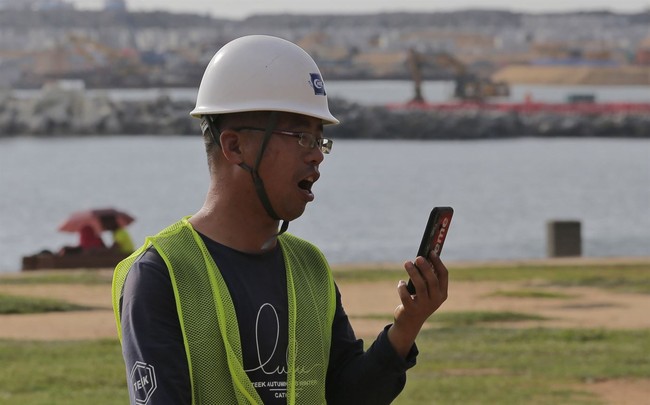Catholic priests in the U.S. are increasingly identifying as conservative, both politically and theologically, while prioritizing adherence to Catholic teaching over party-line politics.
The Catholic Project at the Catholic University of America conducted a survey in 2022, titled *The National Study of Catholic Priests*. This study found that younger priests are more likely to identify as politically and theologically “conservative,” whereas those identifying as “liberal” or “progressive” are becoming increasingly rare.
However, a follow-up study published recently uncovered wide-ranging nuances among priests’ self-definitions. It revealed a stronger devotion to Catholic Church teachings than to secular labels of either “conservative” or “liberal.”
### Generational Shifts in Political Identification
Among priests ordained prior to 1975, the majority (61%) identified as either “liberal” or “very liberal” politically. In this group, 25% identified as “moderate,” 13% as “conservative,” and only 1% as “very conservative.”
For those ordained between 1975 and 1979, fewer priests identified as “conservative,” but more (34%) identified as “moderate.” Still, 53% identified as “liberal” or “very liberal.”
Priests ordained between 1980 and 1989 showed a shift towards political conservatism: only 5% identified as “very liberal,” compared to 17% in earlier cohorts, while nearly a quarter (24%) identified as either “conservative” or “very conservative.”
This trend continued with successive generations. Among priests ordained between 1990 and 1999, 40% identified as “conservative” or “very conservative,” while just 26% identified as “liberal” or “very liberal.”
Moving further, only 9% of priests ordained between 2000 and 2009 identified as politically “liberal,” and merely 3% as “very liberal.” Among those ordained after 2010, 11% identified as “liberal,” with only 1% identifying as “very liberal.”
### Attitudes Toward the Current Political Administration
Given the varying interpretations of political conservatism, the Catholic Project’s study asked priests: “To what extent are you concerned about the policies of the current political administration in the U.S.?”
As expected, 94% of priests who identified as “very liberal” politically said they were “extremely concerned” about President Donald Trump’s policies. Similarly, among those identifying as “somewhat liberal,” 83% were “extremely concerned,” 15% “very concerned,” and 1% “moderately concerned.”
Among priests identifying as “moderate,” responses were mixed. Even among “conservative” and “very conservative” priests, some expressed concern about Trump’s administration policies, though to a much lesser extent than their more progressive counterparts.
Specifically, only 21% of “conservative” priests reported being “extremely” or “very concerned.” About a third (31%) were “moderately concerned,” another 31% “slightly concerned,” and 17% “not at all concerned.” Among “very conservative” priests, two-thirds (66%) were either “slightly concerned” (31%) or “not at all concerned” (35%).
The Catholic Project observed, “If attitudes toward the current administration were driven primarily by political loyalty, one would expect the attitudes of more liberal and more conservative priests to present as mirror images of one another. We see a different result.” The nuanced responses indicate concern among priests of all political leanings that appears to be motivated by factors beyond mere partisan preference.
### Priorities for the Catholic Church in America
Another revealing question asked American priests which issues should be priorities for the Catholic Church. Nearly 90% agreed that pro-life issues should be a priority. Immigration and refugee assistance ranked high as well, with 81% placing it in the “priority” category. “Social justice” received 79%, and “racism” 68%.
However, the study did not explore nuances within these priorities. For example, priests who rated immigration highly might mean different things—whether the Church should support liberal immigration policies or should instead emphasize traditional Catholic teachings on national sovereignty and the duties of immigrants to their host nations.
### Conclusions and Recommendations
Overall, the Catholic Project’s report is heartening. It reveals American priests trending further to the Right politically and increasingly embracing theological orthodoxy. It is also encouraging to see priests placing loyalty to Church teachings above political parties or ideologies.
Nonetheless, the report highlights areas for improvement:
1. Catholics within the Trump administration—such as Vice President J. D. Vance—could do more to clarify the morality behind the administration’s policies and projects.
2. Seminary professors and bishops must better clarify Catholic moral teachings to priests, which often do not conflict outright with the administration’s positions on issues like immigration.
### Notable Example: J. D. Vance
Vice President J. D. Vance has publicly proclaimed Christ as “The Way, the Truth, and the Life,” exemplifying the importance for American Christians to engage thoughtfully with their faith amid political and social challenges. His example serves as a call for American Christians to heed the lessons from the decimation of Christian Europe and to hold fast to Gospel values.
—
The ongoing dialogue among American priests reflects the complex intersection of faith, politics, and morality—a dynamic that continues to evolve as the Church navigates contemporary challenges.
https://spectator.org/us-priests-remain-conservative-but-diverge-from-trump/


